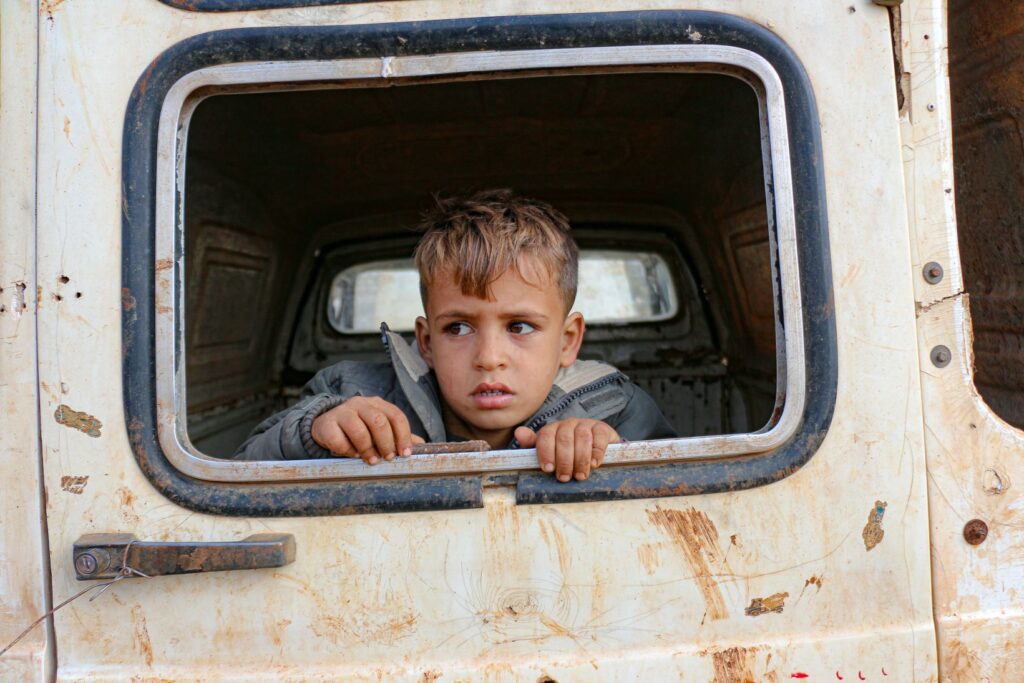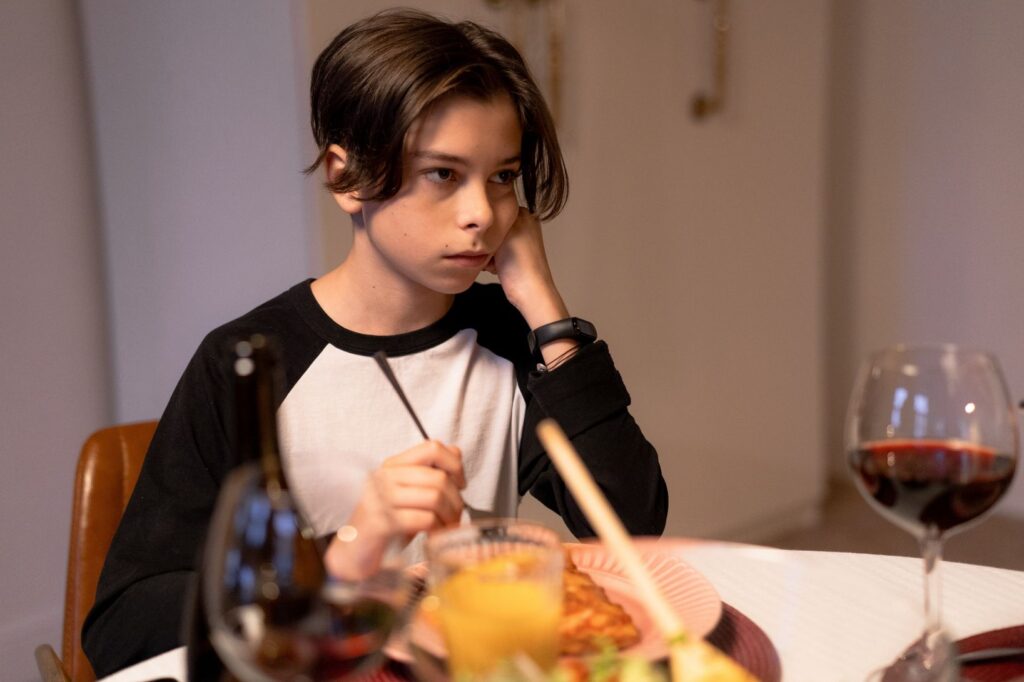We, parents, want the best for our children. It’s hard to fathom them getting sick or having a mental health condition. Yet, nearly 12% of kids ages 3-17 in 2020 had already experienced some form of anxiety in their short lives. Mental health isn’t just a concern for adults — you need to watch for signs and symptoms in your children too.
However, just like with adults, anxiety in children is manageable. If you discover your kid has one of the many possible anxiety disorders, you have plenty of great options for treatment and ways to support them.
Table of Contents
Signs of Anxiety in Children
Kids can experience the same anxiety disorders as adults, but the symptoms sometimes look different. It’s essential to know what you’re looking for since anxiety in kids often goes undiagnosed.
Generalized Anxiety Disorder (GAD)
Kids with GAD have anxiety over more than one area — home, school, and friends. Their excessive fears and worrying are profound enough to affect their daily lives, which become worrisome.
Other symptoms you could look out for include:
- Consistently asking “what if” questions.
- Worrying about circumstances outside of their control.
- Fearing the future.
- Inability to let go of worry.
- Difficulty concentrating.
- Having a hard time sleeping and staying asleep.
- Acting irritable.
- Feeling restless.
Specific Phobias
Kids are often afraid of the dark or monsters under their beds but can typically be talked down from their worries. Children with a specific phobia have an extreme fear of a particular item or situation. It’s common for children to grow out of a phobia if they receive the proper support.
Look for:
- Extreme fear about specific situations like going to the doctor or getting in the pool.
- Excessive fear about an item or person, like clowns or spiders.
Separation Anxiety

Separation anxiety is a child’s excessive fear of being separated from their primary caregiver. While it’s developmentally normal for infants and toddlers to experience this phenomenon, most kids grow out of it. Separation anxiety becomes problematic when they enter preschool or elementary school and still experience it.
Watch for:
- Meltdowns when it’s time to leave home.
- Clinginess to one or more caregivers.
- Asking to stay home from school.
- Faking illness.
- Extreme panic when leaving preferred caregiver.
- Excessive fear of being alone.
Social Anxiety

Social anxiety is characterized by intense self-consciousness and fear of embarrassment in public settings. This disorder tends to pop up in the early teenage years when hormones are raging, and kids are changing.
Watch for signs like:
- Few to no relationships outside of the home.
- Avoidance of any social situations.
- Throwing a tantrum when put in a social situation.
- Extreme fear of embarrassment.
- Signs of physical panic like sweating and shaking in social situations.
- Low self-esteem and low confidence.
Obsessive Compulsive Disorder (OCD)
Kids with OCD experience repetitive and persistent worries — obsessions — combined with rules they create for themselves — compulsions — to overcome their anxiety. Without proper interventions, this disorder can pose a challenge to daily routines.
You may notice your child:
- They have obsessions where they repeatedly have the same anxiety-inducing intrusive thoughts.
- They have compulsions where they must follow specific self-invented rules to eliminate their anxiety — usually repetitive behaviors.
Panic Disorder
If your child gets visibly disturbed for no apparent reason or life’s little problems, they may have a panic disorder. They have a high physical response to stress. Panic attacks are uncommon in young kids, but the likelihood rises as they enter their teen and young adult years.
Your child might experience the following:
- Difficulty breathing.
- Rapid heart rate.
- Uncontrollable crying.
- Feelings of impending doom.
- Shaking.
- Sweating.
- Dizziness.
- Nausea.
- Rapid shifts in the perceived temperature.
How to Support Your Child With Anxiety
The crucial treatment for anxiety disorders is to offer your children unconditional support and encouragement. You’re their rock. These tips will give you the tools to help your kids in need.
1. Talk to a Professional
If you suspect your child is experiencing an anxiety disorder, you should first talk to their pediatrician or your family doctor. They can access assessments to test for anxiety and refer you to a qualified therapist. Giving your child space to talk to a professional can help them heal and learn healthy coping mechanisms to manage their anxiety.
2. Practice Healthy Coping Mechanisms
Establishing coping mechanisms at home or using ones from your child’s therapy sessions will help them learn to deal with their anxiety in a more positive, helpful manner. Some excellent options are deep breathing, engaging the senses, practicing a calming hobby, and visualization.
3. Get Active
Being active as a family can help keep your child’s anxiety at bay without targeting them. A short walk or romp in the yard can improve your kid’s mood. Physical activity and sunshine can lower incidences of anxiety and depression. So lace up those shoes and get
4. Help Them Face Their Fears
While it may seem easy to help your child avoid their fears, it won’t help them in the long run. Instead, help them gradually acclimate to whatever they’re afraid of, always with your help and support.
5. Validate Their Feelings
Let your child know that it’s ok to feel the way they do. Being scared or stressed isn’t easy, but show them how to work together.
6. Challenge Negative Thoughts
It can be challenging to break out when your kid gets stuck in negative thought patterns of terrifying “what if” scenarios. Talk everything out with them — have your child explain what they’re worried about or feeling, and you can help reframe those thoughts or set more reasonable expectations.
7. Reward Progress With Praise
Learning how to cope with anxiety healthily is challenging, especially for young kids who don’t fully understand yet. As your child progresses, give them plenty of praise and encouragement. Not reacting to a typical stimulus or attempting a situation even though it makes them nervous should be a serious moment of pride for both of you.
Catching It Early Is Key
Early detection is essential for your child’s overall success. The longer anxiety disorders go undetected and untreated, the more havoc they can wreak in your kid’s life. Their grades, personal relationships, and self-confidence could all suffer.
They may even become depressed and wonder what’s wrong with them and why they differ from their peers. A diagnosis gives answers and a path forward.
If you have reason to believe your child, of any age, may have anxiety, you should talk to their doctor as soon as possible. Get them the help they need and support them along the way.













